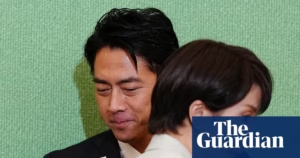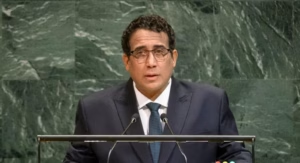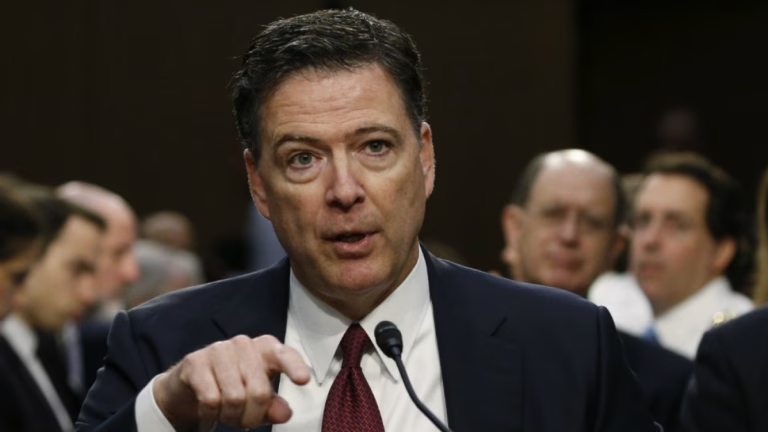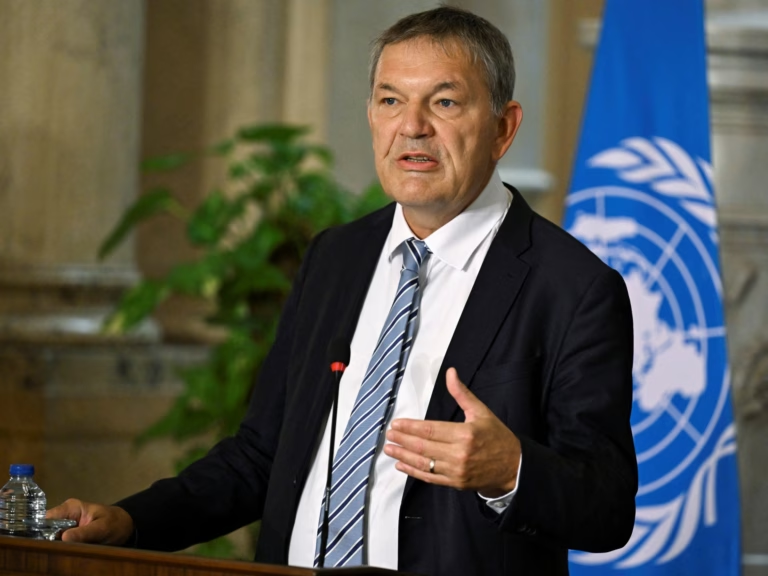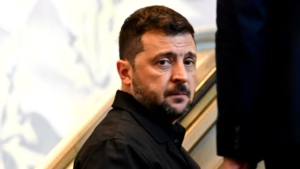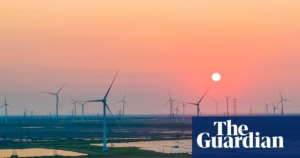Trump’s unexpected remarks were delivered while speaking to journalists ahead of Prime Minister Netanyahu’s visit to the United States to address the United Nations General Assembly in New York.
Recommended Stories
list of 4 items
end of list
“I will not allow Israel to annex the West Bank. Nope. I will not allow. It’s not going to happen,” Trump declared.
When asked if he had discussed his plans to block Israeli annexation efforts with Netanyahu, Trump remained vague.
“Yeah, but I’m not going to allow it. Whether I spoke to him or not, I’m not allowing Israel to annex the West Bank. There’s been enough. It’s time to stop now, OK?” said the US president.
Trump did not elaborate on the measures he would take to prevent potential annexation, leaving analysts skeptical about the reliability of the capricious leader.
Mouin Rabbani, an analyst and fellow at the Qatar-based Center for Conflict and Humanitarian Studies, stated that Trump’s stance was “positive” but questioned his commitment to follow through.
“One attaches value to Trump’s words at their own peril,” Rabbani asserted.
“So the question now is, will he ensure that Israel does not annex the West Bank, and if it does, what will he do about it? Could his stance perhaps be swayed by another conversation?”
Trump’s comments threaten to position his administration at odds with Netanyahu’s far-right Israeli government, which views annexing the occupied West Bank and Gaza as an official political objective.
In July, Israeli lawmakers voted 71-to-13 in favor of a non-binding motion in the Knesset to support West Bank annexation.
The proposal was originally introduced by Israel’s finance minister and far-right leader, Bezalel Smotrich, who resides in an unauthorized settlement in the occupied West Bank and oversees settlement administration within the Israeli Ministry of Defence.
Smotrich and other far-right coalition members have fiercely opposed efforts to negotiate an end to Israel’s conflict with Gaza, threatening to topple the government if any deal is made.
Leading up to other countries like Australia, France, Britain, Canada, and Portugal considering recognition of Palestinian statehood, Smotrich unveiled a plan for thousands of new homes in a contentious, unauthorized settlement that splits the occupied West Bank.
“This development will effectively destroy any possibility of a Palestinian state because there will be nothing left to recognize and nobody to recognize it,” he remarked in August.
“Any country attempting to recognize a Palestinian state now will face our response on the ground,” he stated.
Israeli settlement construction in the West Bank has been continuous since 1967, covering extensive Palestinian land and fragmenting the region with infrastructure under Israeli control.
The International Court of Justice ruled in July 2024 that Israeli settlements in the West Bank are in breach of international law, ordering their cessation and return of the land to Palestinians.
Israel’s foreign policy in the Middle East is heavily reliant on financial, military, and intelligence support from the United States, which is vital for its ongoing military actions in Gaza, the West Bank, and portions of Lebanon and Syria.
A change in US policy could instigate a political crisis, particularly among the far-right parties that comprise Netanyahu’s coalition government.
Trump briefly touched on Gaza, describing the overall situation as “really bad, very bad.”
While hinting at a potential peace deal “soon,” Trump did not provide any specifics or clarity, stating only that “very, really good talks” had taken place with Arab leaders and Netanyahu.
This week, Trump met with leaders from Saudi Arabia, Qatar, the UAE, Egypt, Jordan, Turkiye, Indonesia, and Pakistan on the sidelines of the UN General Assembly to discuss ending Israel’s ongoing military campaign in Gaza.
